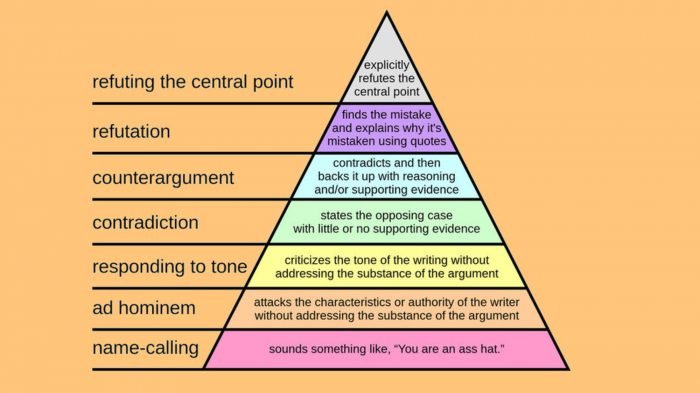View this post on Instagram
People who have made a positive change in history and whose speeches we still study to this day did not spew hate on an internet post.
Now that we are still “recovering” from Facebook, Whatsapp, and Instagram shutting down for long, torturous hours, I noticed how many people’s skins itched because they couldn’t get their words out there (including me), and so everything started flooding through Twitter.
But this piece is not about our favorite social media platforms going MIA. It’s about the power of words that people—especially internet users—freely share with others without considering the possible consequences of such unhindered freedom.
According to Amnesty International UK, freedom of speech “is the right to seek, receive and impart information and ideas of all kinds, by any means.” However, they continue to say, “Freedom of speech and the right to freedom of expression applies to ideas of all kinds including those that may be deeply offensive. But it comes with responsibilities and we believe it can be legitimately restricted.”
There are several instances that some people fail to remember and pay attention to, where freedom of speech can be limited, and such cases may be: hate speech, incitement, and endangering the reputation of others.
It is always recommended to use it responsibly.
What we can safely say is that online commentary and unlimited expression of one’s opinion is not restricted (unless it’s related to what’s been stated above). And so, with no legal action taken against internet users, many may use freedom of speech as an excuse to hurt others. In other words, it may lead to cyberbullying.
According to Unicef, cyberbullying includes spreading lies or posting photos of someone on social media, sending hurtful messages or threats, and impersonating someone and sending mean messages on their behalf.
You don’t have to impersonate someone to be considered within the cyberbullying category. It can be as simple as sending the comment “You’re ugly” on a person’s selfie.
It is always crucial for all of us to remember that respect is not only required in real-life meetings, it is also required online. Users we haven’t met face-to-face and can only see through the screen are also people. They deserve our respect and the mindful consideration of our words before pouring them out.
Unicef carries on to say that cyberbullying can affect us in several ways: mentally, emotionally, and physically, so it is never acceptable to harass others.
Since mean comments on internet posts may not be considered illegal in most cases, we should be responsible for our own words and count to 10 before hitting the “submit” or “send” button.
And why is that? Because the consequences of hurtful comments may not be perceived directly, but behind the screen, the person who is being bullied may give up on their dreams, feel embarrassed and stupid, become physically tired or experience pain in their body, and lose their confidence.
In extreme cases, some people may even take their own lives.
So, before using “freedom of speech” as an excuse to spread hateful comments online, we need to keep in mind the following:
1. Consider the purpose of the comment before sending it.
I have seen comments online on some of the articles shared on social media that said nothing but “barf” or “Ew, I hate this.” What do we understand from such comments? Nothing.
It spreads nothing but hate and the user’s disapproval of the information shared online. No matter the topic, if we express approval or disapproval of something, we need to explain why.
Consider this: someone posts an article about the benefits of owning pets, and you’re not someone who’s into pets. In fact, the words “animals inside a house” trigger you.
There are two possible replies: “You’re disgusting! I’d never have pets!” or “I see your point, and pets make many people happy, but I don’t see myself taking care of another being inside my house. At least I don’t have the energy to do that! But it’s an informative article nonetheless.”
You expressed your concerns with having pets inside your house in both cases, but one was mean and downright disrespectful, and the other one was mindful.
2. Consider “Graham’s Hierarchy of Disagreement.”
I understand that some online posts may be triggering, especially when it comes to people promoting misogyny, racism, and so on. But to make a real change, posting hateful replies will not help.
We need to write an argument, backed up with evidence, in order to express why this particular post is unacceptable.
Waylon talked to us several times about Graham’s Hierarchy of Disagreement. If we look at the pyramid, “name-calling” is at the bottom of the pyramid for a reason.
We must be smart about the things we post.

3. Let your words leave a positive impact for a better world.
Think Martin Luther King. Think Abraham Lincoln. Think Malala Yousafzai. Think Mahatma Gandhi.
Did they fight the system by saying “Ew! Yuck! This sucks, and your decisions suck just like your face!”
No.
Martin Luther King said, “We know through painful experience that freedom is never voluntarily given by the oppressor, it must be demanded by the oppressed.”
Abraham Lincoln said, “Those who deny freedom to others, deserve it not for themselves.”
Malala Yousafzai said, “If one man can destroy everything, why can’t one girl change it?”
Mahatma Gandhi said, “When restraint and courtesy are added to strength, the latter becomes irresistible.”
Let your words count. You disagree with something? Don’t bully the person you oppose. Express your opinion with logic, evidence, and mindfulness.
Eventually, if we, as writers, for instance, see a hateful comment online that has no basis, we will not stop writing. If every writer stopped because of hateful messages, we wouldn’t have Toni Morison and other great authors in our history.
But if someone comes in with a mindful argument that is backed up by evidence, we might either start an informative debate, explain to each other our points of view, and who knows? Maybe you’d succeed in changing our minds.
Think before you click “send.”
Words have a powerful way of affecting people’s minds and hearts.
 Share on bsky
Share on bsky





Read 13 comments and reply